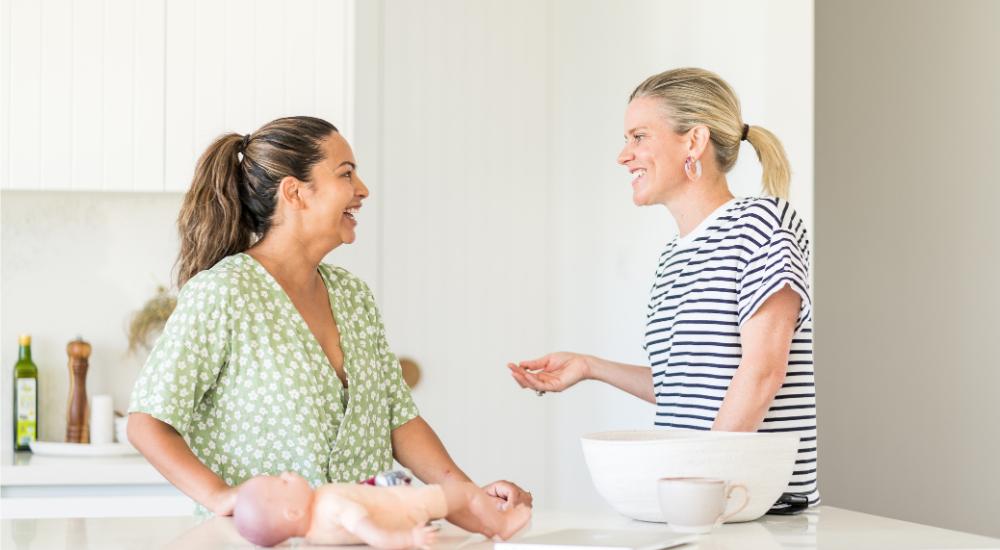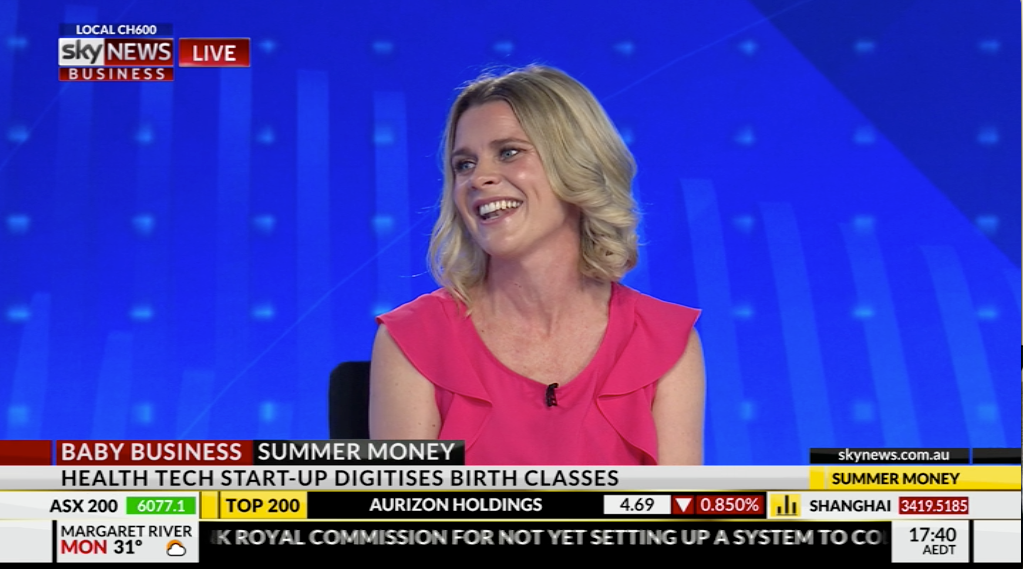Guide to Food & Nutrition During Pregnancy
But what does eating well really mean when you’re pregnant?
A healthy, balanced diet during pregnancy helps you to stay well and to help your baby grow and develop. It also plays an important role in healthy pregnancy weight gain while maintaining your energy as much as possible!
However, so often we are confused and bombarded with ‘opinions’ dressed up as well-intentioned advice.
“Eat up, you’re eating for two now!”
“Don’t eat that, it’s no good for the baby”
We’ve rounded up the essential pregnancy food and nutrition advice based on the evidence.
Q: Should I be eating more now that I’m pregnant?
When you’re pregnant, you don’t need to eat a whole lot more kilojoules (eating for two is a myth!). In the first trimester, your body doesn’t require additional calories. By the second trimester, women need on average approximately an additional 1400 kilojoules a day – which equates to roughly two pieces of toast with avocado and a piece of fruit. By the third trimester, you only need approximately 1900 extra kilojoules per day which is 500 more than the second trimester. You can easily get this with a snack of ½ cup berries and ½ cup of yoghurt.
As you can see, it’s not exactly eating for two!
While your overall energy requirements don’t change a great deal, your nutritional requirements change.
What does that mean?
During pregnancy your daily requirements for the following increase:
• Protein
• Iron
• Iodine
• Folate
• Other vitamins and minerals
So, rather than worrying about the quantity of food you’re eating, be more aware of the quality. If you’re concerned about getting the nutrients you need or think you’re diet might have some gaps, speak to your healthcare provider or qualified dietician or nutritionist who specialises in pregnancy health.
The best way to make sure you’re getting everything you need is to opt for nutrient-dense foods that are packed full of vitamins and minerals. The easiest way to do this? Eat the rainbow! By eating a wide variety of vegetables and fruit daily, you’ll be going a long way to ensure that you’re getting all the nutrients you need.
You should also be taking a quality pregnancy-specific multi-vitamin to help cover any nutritional gaps in your diet. This is especially important for those Mummas that struggle to eat well thanks to morning sickness.
Also include a variety of freshly cooked meat, fish, poultry and eggs, nuts, seeds, unsweetened yoghurt, hard cheese and wholegrain cereal products such as sourdough bread, wholemeal pasta and brown rice. Avoid excess sugar and processed oils (such as vegetable, cottonseed, sunflower etc.) wherever possible – essentially steer clear of most packaged foods (always read the ingredients list when you do choose packaged foods) and avoid takeaway foods as much as you can.
Q: Help! My morning sickness has obliterated my appetite. Nothing seems appealing at all… what should I eat?
One of the hardest parts of pregnancy is when you don’t feel like eating anything at all or, if you are craving something it’s often not the most nutritious option. This is totally natural and normal, so try not to overthink it or worry too much. Your body is incredible at ensuring your growing baby is getting everything it needs, so go easy on yourself.
If all you can manage some days is Vegemite toast with lots of butter – so be it. Usually, after the first trimester, your queasiness will ease up and you’ll start to feel like eating normally again. The main thing is to be mindful of what you’re eating and wherever possible, make the healthiest choice you can.
Some great options when you’re not feeling well include things such as plain porridge, a plain yoghurt with fresh fruit and wholegrain crackers with cheese.
Q: What should I avoid eating while pregnant?
While pregnant there are some foods that you should minimise your intake of or avoid entirely. It’s best to minimise processed foods such as cakes, biscuits, pastries, chips, chocolate and highly sweetened beverages such as soft drinks, energy drinks, cordials etc. Your body doesn’t need all those empty calories and while they may taste good at the time, you know they’ll leave you feeling sluggish and blah. The occasional treat here and there is OK, but just be mindful that those calorie, sugar and salt-laden treats aren’t good for you or bub.
There several foods that you should avoid completely while pregnant due to an increased risk of listeria. Listeriosis isn’t normally a major issue for healthy adults however, it can post a serious threat to unborn babies and can result in miscarriage, stillbirth or premature birth.
Common foods that are known to have a higher risk of carrying listeria include;
• pate
• raw seafood
• pre-prepared salads and sandwiches
• cold, cooked chicken
• cold processed meats
• unpasteurised dairy products such as soft or semi-soft cheeses
• soft serve ice cream
• raw eggs
Q: What should I be mindful of when preparing foods and eating out?
You should be especially mindful of practising excellent food hygiene when pregnant to avoid the risk of infections which can harm your unborn baby. This is especially important when preparing dishes using meat, fish, eggs and dairy products. Wash all fruits and vegetables well, use septate chopping boards for meat, dairy and produce, cook and reheat foods well and be extra careful with leftovers. Best to safe than sorry!
When eating out, be wary of foods that are left in display cases all day – like pre-prepared wraps, sandwiches and salads. Try and order freshly prepared foods and avoid establishments that don’t have excellent hygiene ratings. It all comes down to common sense and isn’t something to be paranoid about, just be aware of the foods you’re eating and how they’ve been prepared.
Bon appetite Mumma!



